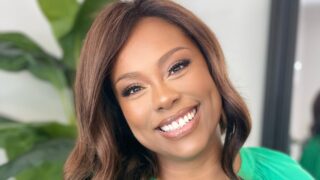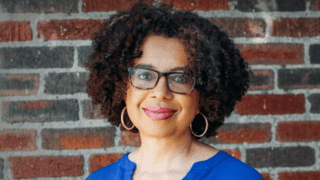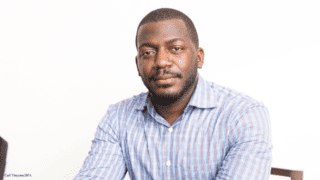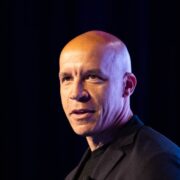The Lavin Agency Speakers Bureau
A speakers bureau that represents the best original thinkers,
writers, and doers for speaking engagements.
We value your privacy
We use cookies to enhance your browsing experience and to analyze our traffic. By clicking "Accept All", you consent to our use of cookies.
We use cookies to help you navigate efficiently and perform certain functions. You will find detailed information about all cookies under each consent category below.
The cookies that are categorized as "Necessary" are stored on your browser as they are essential for enabling the basic functionalities of the site. ...
Necessary cookies are required to enable the basic features of this site, such as providing secure log-in or adjusting your consent preferences. These cookies do not store any personally identifiable data.
Functional cookies help perform certain functionalities like sharing the content of the website on social media platforms, collecting feedback, and other third-party features.
Analytical cookies are used to understand how visitors interact with the website. These cookies help provide information on metrics such as the number of visitors, bounce rate, traffic source, etc.
Performance cookies are used to understand and analyze the key performance indexes of the website which helps in delivering a better user experience for the visitors.
Advertisement cookies are used to provide visitors with customized advertisements based on the pages you visited previously and to analyze the effectiveness of the ad campaigns.
A speakers bureau that represents the best original thinkers,
writers, and doers for speaking engagements.
Stories of queer identity and Black joy have the power to educate us on diversity, inspire social justice activism, and build community.
Storytelling isn’t just a form of entertainment—for GEORGE M. JOHNSON, whose body of work on diversity and queer identity inspires readers across the world to “be themselves unapologetically,” writing has the power to change lives. The award-winning Black non-binary author and activist is one of the TIME100 Next, TIME‘s annual list of rising stars, as well as one of Out’s 100 Most Influential LGBTQ+ People. They use their inspiring life story to teach individuals, corporations, and policymakers about LGBTQIA+ activism and social justice in healthcare. Their New York Times bestselling memoir All Boys Aren’t Blue, a powerful recounting of George’s adolescence growing up as a young Black queer boy in New Jersey, was optioned for television by Gabrielle Union and Sony TV and called “an exuberant, unapologetic memoir infused with a deep but cleareyed love for its subjects” by the New York Times.
“Love—deep, soulful, clarifying love—shines in George M. Johnson’s writing like sunlight passing through a church’s stained-glass windows. Their storytelling and the mission that propels the telling is always right on time.”— Saeed Jones, award-winning author of How We Fight for Our Lives
In their forthcoming book, Flamboyants, George celebrates the writers, performers, and activists from 1920s Black America whose queer identities have been obscured throughout history. Through 14 essays, they reveal just how much American culture has been shaped by Queer Black icons, and why their stories deserve to be celebrated in their entirety.
George is the author of the New York Times Bestselling Young Adult Memoir All Boys Aren’t Blue, which explores their adolescence growing up as a young Black Queer boy in New Jersey through a series of powerful essays. The book is a Teen Vogue Recommended Read, a Buzzfeed Recommended Read, a People Magazine Best Book of the Summer, a New York Library Best Book, and a Chicago Public Library Best Book. It was optioned for Television by Gabrielle Union’s “I’ll Have Another Productions” and Sony TV. George serves as the executive producer and co-writer for the upcoming series based on their real-life college experience at the HBCU Virginia Union University.
George’s second memoir We Are Not Broken tells the vibrant story of George, Garrett, Rall, and Rasul—four children raised by Nanny, their fiercely devoted grandmother. Nic Stone, New York Times bestselling author of Dear Martin, calls the book “a deeply impactful account of intergenerational love that reveals the power of accepting young people exactly as they are while encouraging them to be ever more themselves.” They’re also an HIV activist, serving as Chair of the Black Leadership AIDS Crisis Coalition for Black Gay Men for AIDS Healthcare Foundation, a National Advisor for ViiV pharmaceutical, and Gilead Speaker.
Interspersed with personal narrative, powerful poetry, and illustrations by award-winning illustrator Charly Palmer, Flamboyants looks to the past for understanding as to how Black and Queer culture has defined the present and will continue to impact the future. With candid prose and an unflinching lens towards truth and hope, George M. Johnson brings young adult readers an inspiring collection of biographies that will encourage teens today to be unabashed in their layered identities.
They’ve written for major outlets including Teen Vogue, Entertainment Tonight, NBC, The Root, Buzzfeed, Essence, Ebony, THEM, and The Grio. They have also served as Guest Editor for BET.com’s Pride month. They were awarded the 2019 Salute to Excellence Award by the National Association of Black Journalists for their article “When Racism Anchors your Health” in Vice Magazine and was named to The Root 100 Most Influential African Americans in 2020.
George is a proud HBCU alum twice over, and a member of Alpha Phi Alpha Fraternity Incorporated.
George M. Johnson is an incredible thought leader, advocate and activist who uses their voice as a platform to inspire and ignite others to action! It was an absolute pleasure having them speak to our employees at Nike and our teammates left with a renewed sense of the role we must all play to drive solidarity and allyship in what at times seems like a depraved world. I highly recommend any company to bring George in to speak to employees about the need to educate ourselves on the intersectional experiences marginalized communities face in America and around the world.
NikeAn immense thank you to George for joining us for the 826 Staff Development Conference. It was truly an honor and a gift to have them join us for this time together. The reflections they shared will live deeply in our own writing minds and in our work alongside tens of thousands of young writers in the year ahead. It was truly the standout talk and conversation of our week, and we have heard from team members across the country how meaningful the keynote was.
826 NationalPulitzer Prize-Winning author of Stay True New Yorker staff writer CBS Sunday Morning contributor

Author of Self-Compassion: The Proven Power of Being Kind to Yourself Co-founder of the Center for Mindful Self-Compassion
CEO of Trend Hunter New York Times bestselling author of Create the Future

World-Renowned Artist Winner of the US Department of State Medal of Arts Guggenheim Fellow

Founder of Vision & Justice Harvard Associate Professor Bestselling Author of The Rise and The Unseen Truth

Author of Indivisible: How to Forge Our Differences into a Stronger Future Founder and CEO of WatchHerWork

Author of Indivisible: How to Forge Our Differences into a Stronger Future Founder and CEO of WatchHerWork

Author of The 272: The Families who Were Enslaved and Sold to Build the American Catholic Church Associate Professor at New York University Former New York Times Johannesburg Bureau Chief

Author of The State Must Provide: The Definitive History of Racial Inequality in American Higher Education Staff Writer at The Atlantic

Author of Grit, the #1 New York Times Bestseller | Pioneering Researcher on Grit, Perseverance, and the Science of Success

2024 Nobel Prize Winner | 3rd Most Cited Economist in the World | MIT Institute Professor | Bestselling Co-Author of Why Nations Fail and Power and Progress

Pulitzer Prize-Winning Creator of The 1619 Project | Executive Producer of the Emmy Award-Winning 1619 Project Hulu Docuseries | MacArthur Genius

Nike's Former Chief Marketing Officer | Author of Emotion by Design
CEO of The Atlantic | Former Editor-in-Chief of WIRED

As George’s memoir All Boys Aren’t Blue has reached massive success as a New York Times bestseller, it has become American Library Association’s third most challenged book of 2021. But with each shove, George just continues to persevere and advocate for Black and queer voices. “Black storytelling has often been banned,” George says. “My book is a tool so th...

